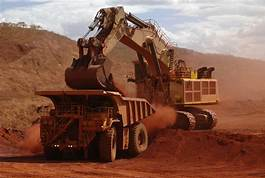Course info

Course Description: Techniques d'Exploitation Minière
The course "Techniques d'Exploitation Minière" offers an in-depth examination of the diverse methodologies, technologies, and practices integral to the mining industry. Recognizing the critical role mining plays in global economic development, this course is designed to provide students with a holistic understanding of mining techniques, spanning traditional practices to contemporary innovations.
Throughout the course, students will explore the fundamental principles of mining engineering, with a focus on the technical, operational, and environmental aspects of various extraction methods. The curriculum emphasizes not only the processes used to locate, extract, and process mineral resources but also the broader implications of mining activities on safety, community health, and environmental sustainability.
Key Components of the Course:
1. Historical Context and Evolution of Mining Techniques:
- A comprehensive overview of the historical development of mining practices across different cultures and regions.
- Examination of how historical innovations and societal needs have shaped modern mining techniques.
2. Detailed Study of Mining Methods:
- Surface Mining Techniques:
- In-depth analysis of open-pit and strip mining methods, focusing on the equipment, processes, and best practices for extracting resources located near the earth’s surface.
- Exploration of quarrying operations for dimension stone and construction materials.
- Underground Mining Techniques:
- Thorough exploration of various underground mining methods, including room and pillar, cut and fill, and block caving, including design considerations, equipment, and operational challenges.
- Discussions on the geotechnical aspects of underground mining and ground stability issues.
3. Mineral Processing and Extractive Metallurgy:
- Overview of the techniques employed to process extracted ores, including crushing, grinding, concentration, and smelting.
- Specialized focus on hydrometallurgical and pyrometallurgical methods, analyzing their applications for different types of minerals such as gold, copper, and rare earth elements.
4. Environmental Impact and Management:
- In-depth study of the environmental impacts associated with mining activities, including land degradation, water contamination, and biodiversity loss.
- Emphasis on environmental regulations, compliance strategies, and best practices for minimizing ecological footprints.
- Exploration of sustainable mining practices, including waste management, reclamation, and resource efficiency.
5. Safety Practices and Risk Management:
- Comprehensive training on occupational health and safety measures specific to mining operations.
- Identification of common hazards and risk assessment strategies to protect workers and surrounding communities.
- Development of emergency response plans and crisis management protocols.
6. Economic Aspects of the Mining Industry:
- Evaluation of the economic factors influencing mining operations, including market dynamics, commodity pricing, and investment evaluation.
- The study of socio-economic impacts of mining on local communities, including job creation, infrastructure development, and potential conflicts.
7. Emerging Technologies and Future Trends:
- Exploration of innovative technologies revolutionizing the mining industry, such as automation, data analytics, and artificial intelligence.
- Discussion on the implications of climate change on mining practices and the industry's transition towards greener methods.
- Examination of new materials, such as those found in offshore and deep-sea mining, and their potential for future extraction.
Learning Environment:
The course utilizes a blend of theoretical knowledge and practical applications, encouraging active student engagement through multimedia presentations, virtual field trips, and interactive simulations. Students will work collaboratively in groups to analyze case studies, participate in discussions on current industry trends, and apply their learning to real-world scenarios.
Assessment and Evaluation:
Students will be assessed through combination of quizzes, individual and group projects, presentations, and participation in discussions. Case studies will require students to synthesize their knowledge and propose innovative solutions to common challenges faced in mining operations.
By the conclusion of this course, students will have developed a robust understanding of mining techniques, enabling them to critically assess mining operations and contribute meaningfully to the industry with an awareness of the essential balance between resource extraction and sustainability.
- Teacher: RAIS KHALED
